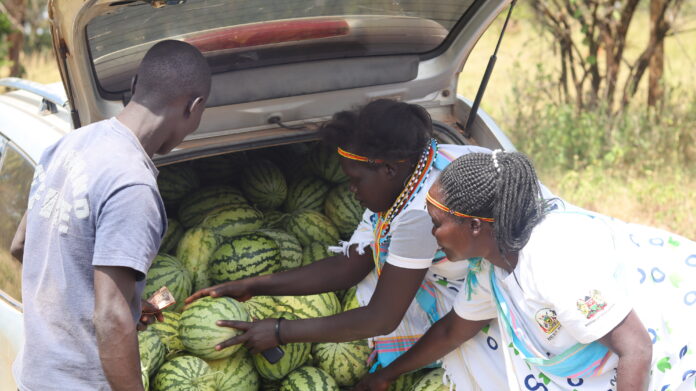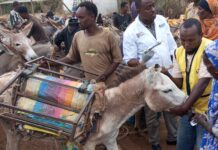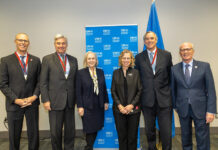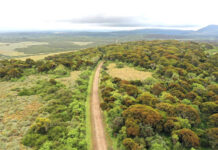By Omboki Monayo
West Pokot County, Kenya: At Katinot Village, which is a short walking distance from Lomut Town in Pokot Central, the blazing sun has baked the ground and turned it into a hard, brown, and dusty mix of sand, pebbles, and loam soil.
The long-awaited rains have briefly come and gone, leaving the choking heat behind in their hurried wake.
However, in the kitchen garden that is Christine David’s plot, long rows of luscious vegetables line the two-acre plot, defying the hot weather.
The thriving permaculture vegetable project is a testimony to the resilience and determination of the Katinot Mother-to-Mother Support Group.
It is one of the projects that Action Against Hunger (ACF) is supporting in selected parts of West Pokot County, in collaboration with TenderStem.
Dubbed the Coregeo Project, the initiative seeks to empower women and households in the region through nutrition education, climate-smart technology, and financial literacy.
In September 2022, the National Drought Management Authority reported that at least 1 in every 50 or 1.9 percent of children under the age of five years in the county were malnourished, as recorded through the Mid Upper Arm Circumference color codes (MUAC).
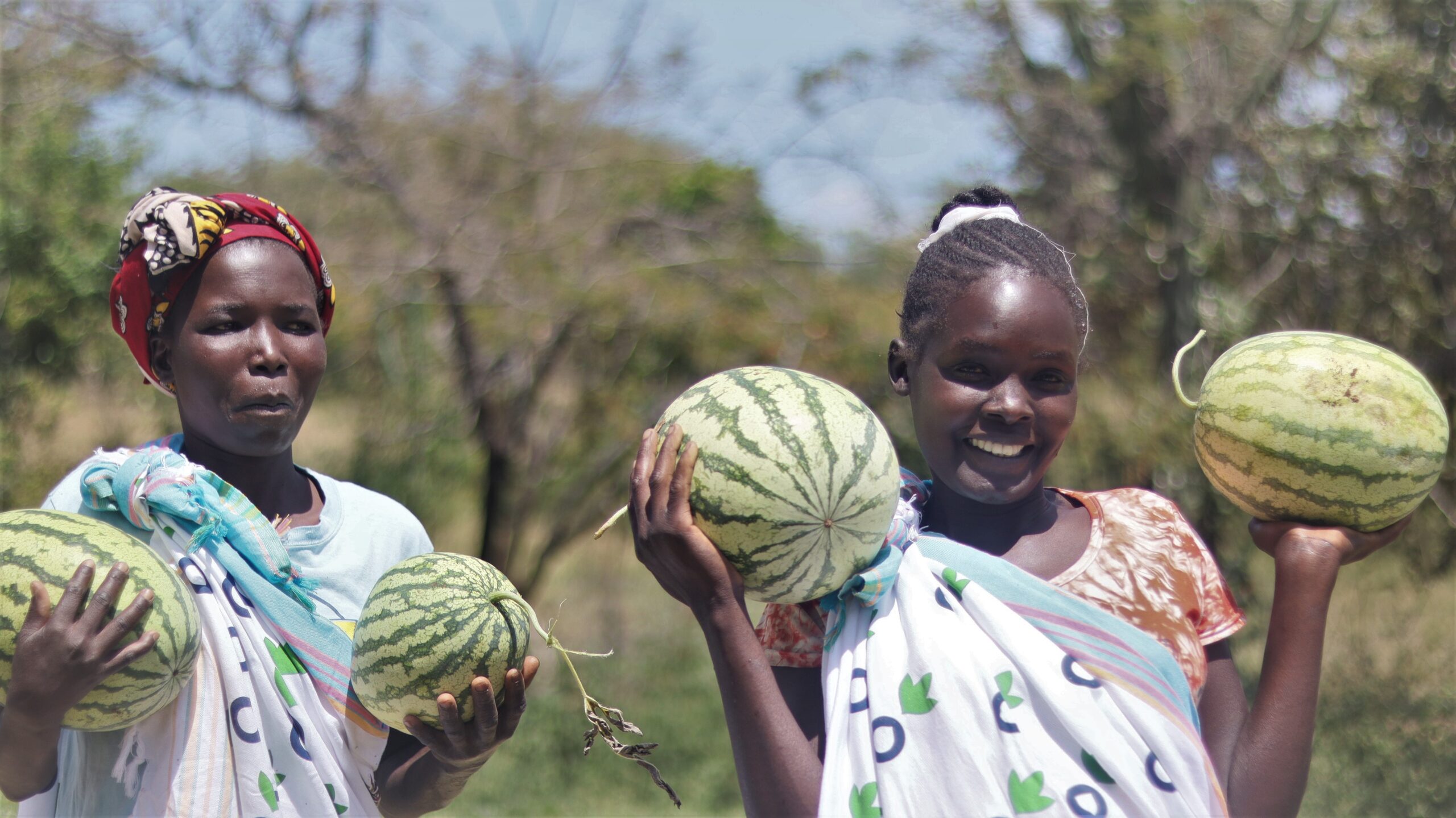
This was a slight decline from the 2.0 percent recorded in the previous month.
To address the nutrition crisis in the region, members of the Mother to Mother Support Groups are taught good agricultural practices which they practically learn on the demonstration sites set up on lead farmers’ plots.
At Saraka Village, ACF has also helped to set up a demonstration plot at the farm of Peninah Chemtai.
“In March 2022, we began a Water, Sanitation, and Hygiene (WASH) education program with the women in my village Mother to Mother Support Group. Among the important things we learned were hand-washing, exclusive breastfeeding for the first six months of our babies’ lives, and the importance of having a diversified diet,” says Ms. Chemtai.
Part of the program involved members constructing pit latrines in their homesteads. To get the other 24 members on board, Peninah had to complete her latrine first.
“One cannot teach others to do what she has not done herself. I made sure I had a functional latrine and this encouraged the rest to follow my example,” she says.
According to Lucas Odhiambo, who is the ACF Food Security and Livelihoods (FSL) officer for West Pokot County, the program was designed in response to the high cases of malnutrition in the region
“We rolled out the program to assist the households in improving their nutritional capacity and eliminate cases of malnutrition
At the halfway point beneath the shed of some Sokorio trees in the two-acre patch of fertile loam soil, there are several setups featuring kales, spinach, black nightshade, and amaranth.
“Sokorio trees have been our community’s sole source of vegetables for a long time. The trees have thorns which make climbing them a risky and often painful affair,” says Susan Tudoren of Kokowplam village.
Next to the cones and net setups with vegetables are the circular trenches that are a Mandela garden and a sunken garden respectively.
Life was not always this green at the Satinot farm which was a fallow roaming ground for goats and cattle.
Chairlady Nelly Lotoro, who also takes care of four other children, was looking for a way to offset the family budget expenses.
“I had to walk to Lomut to buy vegetables for at least Ks100 daily. Feeding my family of 12 children plus my husband was an uphill task for the rather light pockets I had at the time,” says Katinot Mother to Mother Support chairperson Nelly Lotoro.
The women’s fortunes changed when they met an Action Against Hunger (ACF) team that was visiting the area on a fact-finding mission.
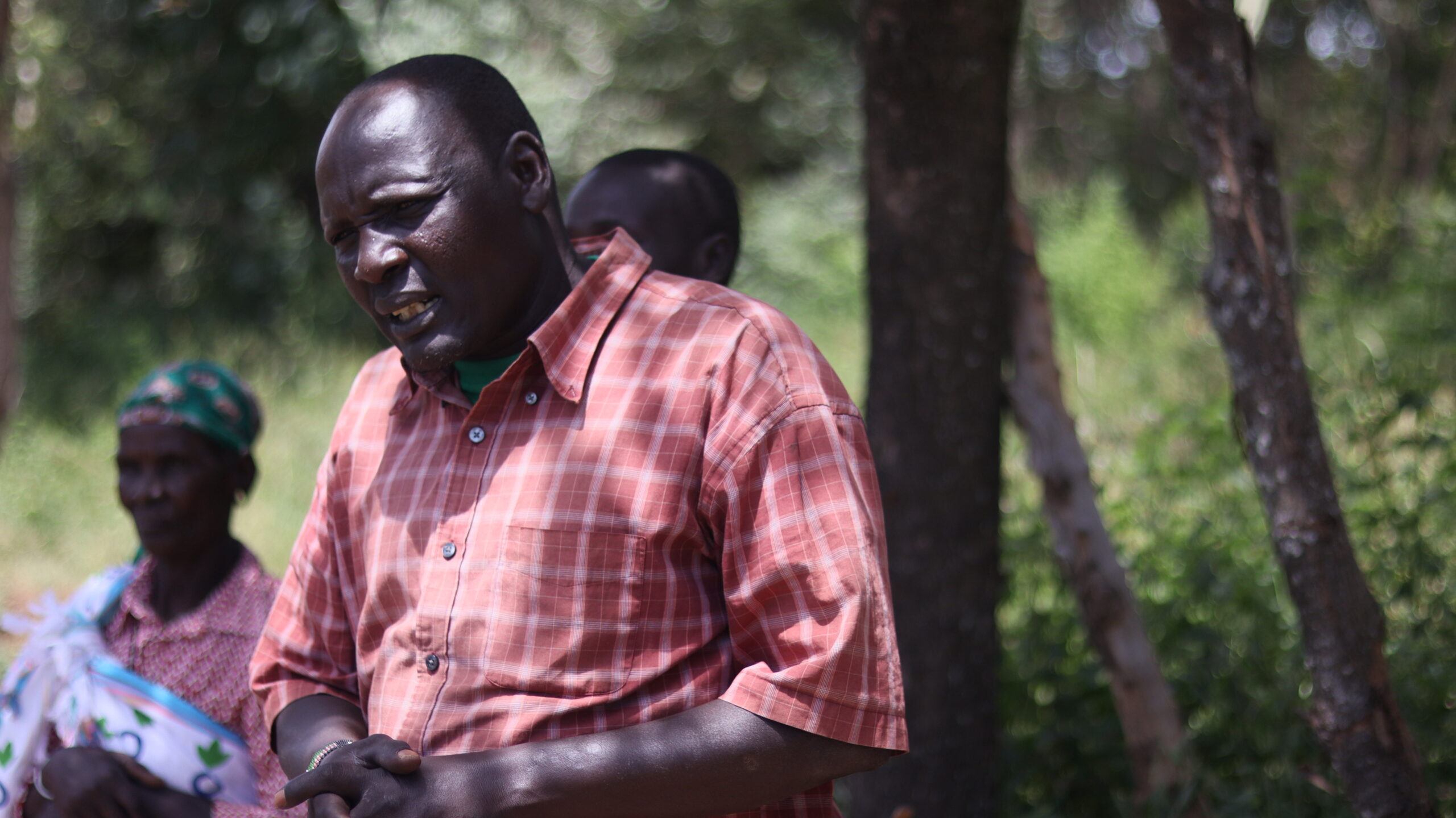
“We were lucky and privileged to meet Lucas Odhiambo and his ACF colleagues who were kind enough to recommend that we start a mother-to-mother support group to carry out joint agricultural and savings projects,” she says.
According to group secretary Ruth Ngeiywa, the group started meeting every week for deliberations.
“We would meet and contribute Ksh100 for welfare
Christine who is a community health volunteer would dutifully teach the women about the need to feed their families with food from the different groups.
“I ensured group members were empowered with knowledge on proper and healthy diets that would keep their children from falling sick unnecessarily or being affected by malnutrition,” she said.
“We decided to take up the ACF team on their suggestion to set up a kitchen garden. Having been used to grassy backyards that were lying idle, we felt we had nothing to lose, and went ahead with the garden,” she says.
To water the garden, the group would fetch water from a river more than a kilometer away.
“We would fetch water with jerrycans and water the garden after setting up the various garden technology installations.”
Barely three months down the line, the garden is a profusion of different vegetables and is already the talk of the village.
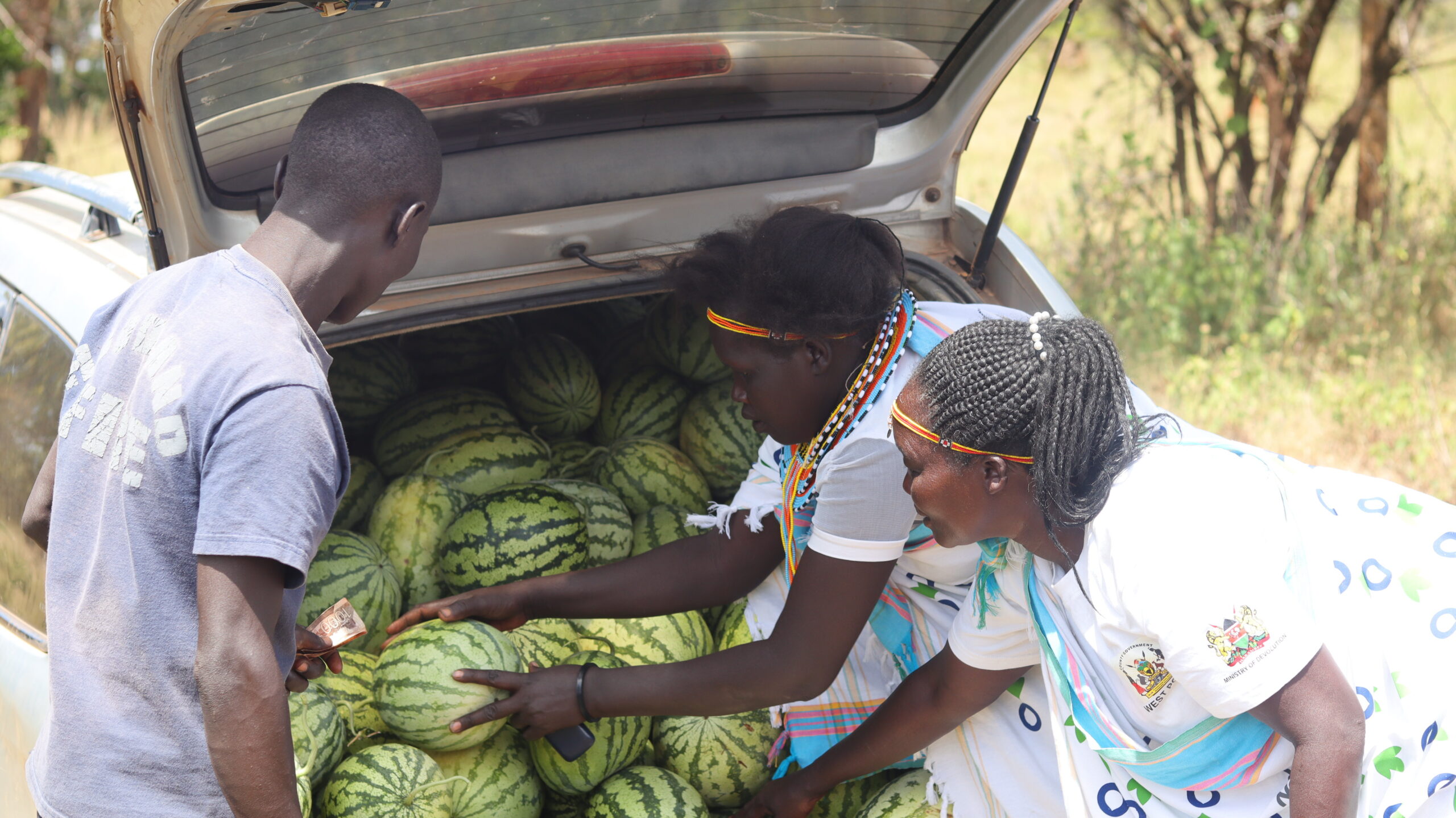
“Quite several women and their husbands have expressed interest in our activities, and have even asked if they can join us,” says Christine David.
The members have also applied the technology to have vegetables in the Cone garden, Mandela garden, Sunken garden, Moneymaker pump, furrow irrigation, etc.
We used to wonder what it was that the women were doing until we followed them to the river bank to see
“It was the pump. Nowadays we help the women pump the water because we understand the importance of water in the garden project,” he says.
“We no longer have to depend on rain to get our fruits or vegetables,” adds Lomwatum.

